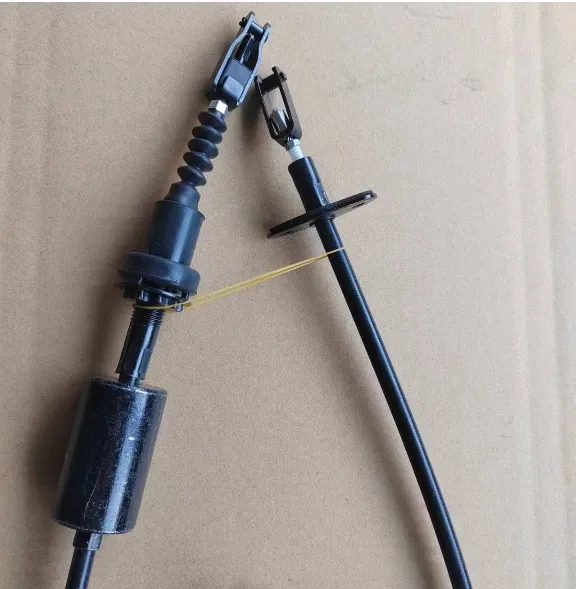Enhancing Vehicle Performance with Clutch Lines
For drivers who value smooth and responsive gear changes, the clutch line is an integral component of their vehicle’s hydraulic clutch system. Whether you're upgrading your car for better performance or replacing worn-out components, understanding the importance of the clutch fluid line and the benefits of a steel clutch line is essential for maintaining peak performance.

What Is a Clutch Line?
The clutch line is part of the hydraulic system that facilitates the transfer of pressure from the clutch pedal to the clutch mechanism. When you press the pedal, the clutch fluid line delivers hydraulic fluid to the slave cylinder, allowing for seamless engagement and disengagement of the clutch.
A high-functioning clutch line ensures:
- Consistent Pressure: Delivers the exact amount of force needed for smooth gear shifts.
- Durability: Withstands the stresses of hydraulic pressure and constant use.
- Improved Responsiveness: Enables quicker, more precise clutch engagement.
Over time, clutch lines can wear out, leading to leaks, reduced responsiveness, or even complete system failure.
The Advantages of Steel Clutch Lines
While most vehicles come with rubber clutch lines as standard, upgrading to a steel clutch line offers significant benefits:
Enhanced Durability
Steel lines are far more resistant to wear, abrasion, and damage compared to rubber lines. This durability makes them ideal for both daily driving and high-performance applications.
Better Performance
Steel lines reduce flex and expansion under pressure, resulting in a firmer, more responsive clutch pedal feel.
Temperature Resistance
Unlike rubber, steel clutch lines can withstand extreme temperatures without degrading, making them suitable for demanding driving conditions.
Longevity
Steel lines have a longer lifespan, reducing the need for frequent replacements and lowering long-term maintenance costs.
If you want consistent performance and reliability, investing in a steel clutch line is a smart choice.
Why the Clutch Fluid Line Matters
The clutch fluid line plays a crucial role in transferring hydraulic fluid, ensuring that the system operates efficiently. A compromised clutch fluid line can result in fluid leaks, reduced hydraulic pressure, and difficulty in shifting gears.
Signs of a Failing Clutch Line
A worn-out or damaged clutch fluid line or steel clutch line can cause several issues, including:
- Spongy Pedal Feel: Indicates air in the system or fluid leaks.
- Difficulty Engaging Gears: Suggests insufficient hydraulic pressure.
- Leaking Fluid: A clear sign of a damaged clutch line.
- Reduced Performance: Delayed or inconsistent clutch engagement.
If you experience any of these symptoms, inspecting your clutch system and replacing faulty components is essential.
How to Choose the Right Clutch Line
When selecting a clutch line, clutch fluid line, or steel clutch line, keep the following factors in mind:
- Material: Opt for stainless steel lines for maximum durability and performance.
- Compatibility: Ensure the line is designed for your vehicle’s make and model.
- Length: The line should match the required length for your specific vehicle setup.
- Quality: Choose products from reputable manufacturers to ensure reliability and safety.
- Budget: While steel lines may have a higher upfront cost, their durability and performance benefits make them a worthwhile investment.
Average Cost of Clutch Lines
The price of a clutch line varies based on material and quality:
- Standard Rubber Clutch Lines: $20–$50
- Steel Clutch Lines: $50–$150 or more, depending on customization or performance features
For the best value, compare products from trusted suppliers and prioritize quality over price.
Benefits of a Reliable Clutch Line Supplier
Working with a reputable supplier ensures you receive high-quality clutch fluid lines and steel clutch lines that meet your specific needs. A good supplier will offer:
- Wide Selection: Various materials, sizes, and styles to suit different vehicles.
- Customization: Tailored solutions for unique or high-performance setups.
- Expert Support: Guidance in selecting the right product and ensuring proper installation.
- Competitive Pricing: Affordable options without compromising quality.
Tips for Maintaining Your Clutch Line
To maximize the lifespan and performance of your clutch line, follow these maintenance tips:
- Inspect Regularly: Look for signs of wear, leaks, or damage.
- Replace Fluid: Use high-quality clutch fluid and replace it as recommended by your vehicle manufacturer.
- Upgrade When Necessary: Consider upgrading to a steel clutch lineif you frequently drive in demanding conditions.
- Professional Installation: For optimal performance, have your clutch line installed or replaced by a qualified mechanic.
The clutch line, clutch fluid line, and steel clutch line are critical for a reliable and responsive hydraulic clutch system. Upgrading to high-quality components enhances vehicle performance, reduces maintenance costs, and ensures a smoother driving experience.
If you’re experiencing clutch issues or want to improve your vehicle’s performance, consider replacing your existing clutch line with a durable, high-performance steel option. Partnering with a trusted supplier will ensure you get the best products and support for your specific needs.
-
Workings of Clutch Pipe and Hose SystemsNewsJun.04,2025
-
The Inner Workings of Hand Brake Cable SystemsNewsJun.04,2025
-
The Secrets of Throttle and Accelerator CablesNewsJun.04,2025
-
The Hidden Lifeline of Your Transmission Gear Shift CablesNewsJun.04,2025
-
Demystifying Gear Cables and Shift LinkagesNewsJun.04,2025
-
Decoding Clutch Line Systems A Comprehensive GuideNewsJun.04,2025
